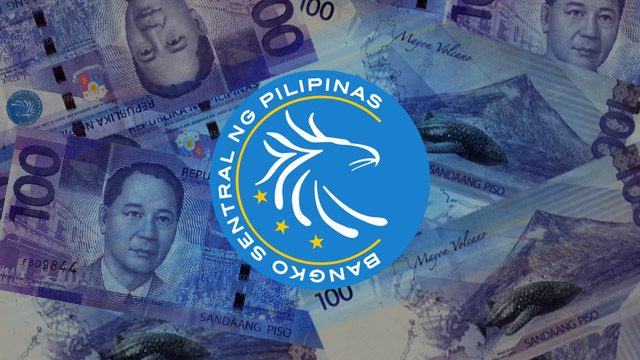SUMMARY
This is AI generated summarization, which may have errors. For context, always refer to the full article.

MANILA, Philippines (UPDATED) – Budget Secretary Benjamin Diokno will take on new responsibilities as the new governor of the Bangko Sentral ng Pilipinas (BSP).
His selection by President Rodrigo Duterte was announced on Monday, March 4. He is expected to serve the remaining term of the late Nestor Espenilla Jr until 2023. Espenilla died of tongue cancer on February 23.
Managing a country’s wealth isn’t easy, and with numerous threats looming from both internal and external factors, it would take an individual with utmost skill and experience to help keep the country afloat. (EXPLAINER: Why is the role of BSP governor important?)
The BSP’s performance over the years has also earned it a reputation as one of the finest central banks in the world.
Rappler reviews the role of the BSP as Diokno steps in as its governor, along with issues he may face ahead:
What is the BSP?
According to Section 2 of Republic Act (RA) 7653 or the New Central Bank Act, the BSP functions as the Philippines’ central monetary authority.
The BSP operates as an independent and accountable body that enjoys fiscal and administrative autonomy, despite being a government corporation. Nonetheless, its functions and privileges are established and protected by law.
The BSP also enjoys corporate powers. As stated in Section 3 of RA 7653, this means that the central bank is allowed to do the following:
- Adopt, alter, and use a corporate seal, which is judicially noted
- Enter into contracts
- Lease and/or own real and personal property
- Acquire and hold assets
- Incur liabilities in connection with its functions
- Compromise, condone, or release any claim of or settled liability, regardless of the amount involved. The Monetary Board determines the terms and conditions under which this may be done, to protect the interest of the BSP.
- To perform any and all actions that may be necessary to carry out the purpose of the BSP
Functions
RA 7653 states that the primary objective and responsibility of the BSP is to “provide policy directions in the areas of money, banking, and credit.”
In line with its vision to promote a strong financial system and maintain price stability, its main functions and operations are the following:
- Liquidity management – manage monetary supply with the prime objective of maintaining price stability of basic goods and services
- Currency issue – sole body with the power to issue national currency
- Lender of last resort – extend loans, discounts, and advances to banking institutions for liquidity purposes and only as a last resort
- Financial supervision – dictate the rules by which banking institutions operating in the Philippines must play by; exercise regulatory powers over non-banking institutions performing quasi-banking functions, and dictate capital requirements, reserve requirements, and deposit guarantees of these financial bodies
- Determine exchange rate policy – ensure orderly market conditions by adhering to market-oriented foreign exchange rate policy
- Financial advisor – serve as banker, financial advisor, and official depository of the government, including government-owned and -controlled corporations
Issues ahead
Handling a country’s wealth reserves is no easy task but more challenging days lie ahead. Some key issues the BSP is expected to face include:
- Establishment of a more inclusive banking and financial system – providing better financial services to micro, small, and medium enterprises, as well us underbanked and unbanked areas
- Establishment of the National Retail Payment System (NRPS) – gradual change from cash and check-based payments to electronic payment schemes, in order to improve transactions between banks and other entities that provide payments services including mobile phones and financial technology companies
- External factors – interest rate hikes by the United States Federal Reserve and the threat of protectionism seen in other countries – especially in the interest of overseas Filipino workers
The BSP is an institution that must always be under scrutiny. After all, it has steered the Philippine economy through many a crisis – a responsibility that will outlive whoever is at its helm. – Rappler.com
Add a comment
How does this make you feel?
There are no comments yet. Add your comment to start the conversation.